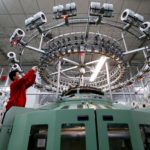Today’s rapidly evolving manufacturing technologies including artificial intelligence, advanced robotics and the “internet of things”—often referred to as “Industry 4.0” technologies—are poised to reshape the global manufacturing landscape, with important consequences for the traditional role of manufacturing in economies’ structural transformation, growth, and job creation.
As we explore in our chapter in the just-published book “ Growth in a Time of Change ,” technology is changing the comparative advantages that drive competitiveness. Developing countries’ comparative advantage in low-skill, low-labor-cost production is at risk as routine low-skill tasks are increasingly automated. New technologies are demanding higher-level skills, raising the capital intensity […]
Full Post at www.brookings.edu
